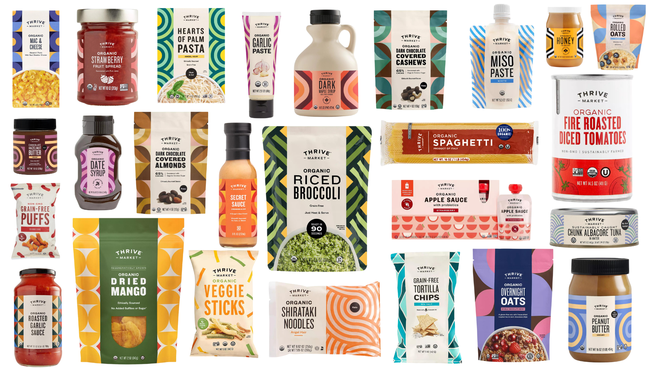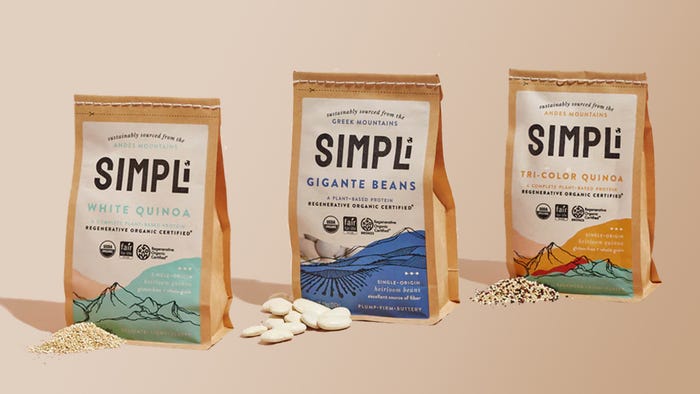Embracing private label: A strategic approach for CPG brands
The popularity of private label food and beverages in the natural and organic space has surged in recent years. Find out how CPG brands can benefit.

Consumer preferences are evolving amidst inflationary pressures, leading to a surge in private label brand sales. According to Circana's CPG Private Brands Update report, published in March, private label sales in the U.S. grew to more than $217 billion in 2023, indicating a substantial increase in consumer adoption of these value-driven options. The report highlighted a 6% increase in dollar sales and a 0.9% increase in unit sales compared to the previous year, showcasing private label brands' resilience and growth potential.
Private label sales outpaced name brands in both food and beverage categories, with a 6.7% increase in the former and a 5.1% increase in the latter. The Private Label Manufacturers Association's (PLMA) 2024 Private Label Report further supported this trend, indicating a 4.7% sales increase to a record of more than $236 billion compared to the previous year.
Consumer behaviors are shifting due to rising costs, inflation, shrinkflation and a competitive job market. This is leading to tighter budgets that focus on only the essentials rather than experimenting with new products.
Bill Gwynn, director of retail sales at SIMPLi, and Jason Bidart, vice president of merchandising, food at Thrive Market share their perspectives as a brand and a retailer, respectively, on how CPG brands and retailers collaborate for successful private label partnerships.
Partners must collaborate for success
Private label product development entails a collaborative effort between CPG brands and retailers. This approach allows brands to align with retailers' requirements and preferences, ensuring a tailored offering for the target market. Gwynn emphasized that the process resembles a regular category view on the brand side, involving submitting pricing, program details, certifications and food safety documents.
"We (SIMPLi) have submitted some products that are currently in our pipeline for development and approval, and we've also developed private label versions of some of our products offered on the branded site," Gwynn says.
Bidart also highlights the collaborative nature of these partnerships. "Both Thrive Market and our CPG brand partner are involved in every decision." At Thrive Market, the product-development process includes creating a concept, sourcing ingredients, conducting research and development, packaging, manufacturing and launching the product, he says. This comprehensive approach aims to foster a true partnership and ensure alignment with the brand's mission while introducing innovative products that complement the existing product line.

Thrive Market offers a broad variety of private label products.
Maintaining standards and value alignment
Maintaining consistency in quality standards is paramount for brands entering private label collaborations. Selecting partners that adhere to high-quality standards aligned with the brand's values ensures a commitment to food safety and quality, even in private label ventures.
Bidart stresses the importance of value alignment from the retail side. "Our brand values all tie back to our mission of making healthy, sustainable living affordable and accessible, so when we are developing private label items, we are ensuring every decision aligns with our mission. This includes ingredients sourced to our high quality and ethical standards, manufacturing practices that put quality and safety first, and the ability to introduce innovative products that don't disrupt the success our CPG brand partners have experienced but are additions to our catalog that fill category gaps. These gaps could be new flavors, different pack sizes/value sizes, or a new dietary direction like making products that are historically not gluten-free into a version that our members that shop gluten-free products can enjoy," he says.
Benefits and considerations
Private label collaborations offer several advantages for CPG brands, including building out the supply chain, increasing demand for products, creating cost efficiencies and reducing marketing expenses associated with branded products.
Gwynn raves about SIMPLi's experiences with private label collaborations, emphasizing the positive relationships created with buyers from various companies. Successful private label ventures allow the brand to design and introduce innovative products, growing both its story and supply chain.
"The No. 1 benefit is that it helps build out our supply chain and increases demand for our products. It also creates cost efficiencies in our supply chain and eliminates additional expenses related to promotion and marketing," Gwynn says.
However, challenges such as the rigorous onboarding process and design reviews require careful navigation. Elements like food safety, documentation processes and label design reviews often take longer than expected, Gwynn says. Differentiation in a crowded market is also crucial, as private label partnerships may lead to branded products competing with private label offerings on the same shelf. To address this challenge, brands can differentiate their products through elevated packaging and emphasizing values such as sustainability and innovation: SIMPLi packages its name-brand products in compostable bags.
From the retail perspective, private label products must fill a specific gap for the retailer's customers. “While we always try to partner with CPG brands that align with our mission of making healthy, sustainable living affordable and accessible, it is most important that a CPG brand that we partner with for private label items is in lockstep with what we are aiming to accomplish," Bidert says.

Many of Simpli's branded products are distributed in compostable packaging.
Key advantages of private label collaborations
Building supply chain and demand. Private label partnerships contribute significantly to building out a brand's supply chain and increasing demand for existing products. By aligning with a retailer's needs, brands can efficiently produce more of its products, fostering growth and sustainability.
Supporting farmers and sustainability. Private label initiatives can support sustainable and regenerative practices, creating opportunities to expand impact. Gwynn highlighted how private label initiatives contribute to SIMPLi's Regenerative Pathway Program, which helps farmers become Regenerative Organic Certified. By onboarding new farmers and creating a demand pipeline, SIMPLi can support sustainable and indigenous farming practices and expand their impact.
“Our goal is to partner with CPG brands utilizing supply chains that align with our high quality and ethical standards and working to give back to people and the planet,” Bidert says. “It also helps that the CPG brand is already doing something innovative within their category and wants to expand that innovation into other avenues like private label."Cost efficiencies. Private label collaborations can lead to cost efficiencies in the supply chain. By streamlining processes and working directly with farmers, brands can offer competitive pricing, a crucial factor for retailers when selecting private label partners.
Reduced marketing expenses. Private label programs often have reduced marketing expenses compared to branded products that require additional expenses for promotion, providing a more straightforward financial model.
About the Author(s)
You May Also Like




